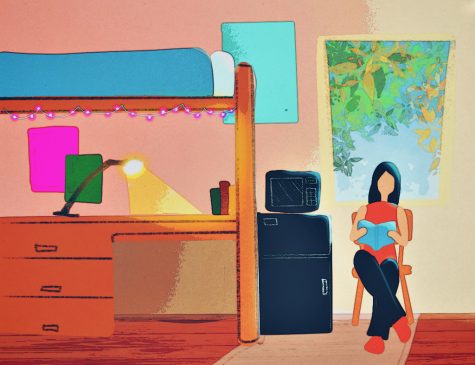Political apathy is unproductive — let’s discuss politics
March 26, 2023
Politics is an increasingly important aspect of our social media usage. By trying to limit discussions surrounding this important topic, we create the perception that politics is isolated from the rest of our lives. Our generation must challenge political apathy to encourage the discussion and education surrounding politics.
It can be difficult to talk about politics because of the prevalence of cancel culture. This trend dictates that if people say the wrong thing, they will likely face backlash. Furthermore, in politics it is difficult to fully educate yourself on political issues you are passionate about. This lack of complete knowledge discourages students from opening up and sharing ideas with others.
However, this exchange of ideas is vital because it allows everyone to learn and grow.
“Politics can get hostile and people can get upset or anxious,” said Toby Newbould, government freshman and the Minister of Culture for the College Republicans at Texas. “However, politics is an essential part of life … so I think it’s important to discuss, especially amongst friends, so you actually understand (these) ideas.”
Newbould’s advice is particularly important for those who don’t usually engage in politics, as open conversations allow individuals to gain knowledge on important issues that affect others.
All students should be politically educated because we vote and interact with institutions and politics daily. By discussing their views, students can better understand the context from which the opposing side’s views arise.
Often, we barge into political discussion mentally prepared for an argument. Regardless, we can learn from one another without vehemently disagreeing.
“On college campuses, we’re able to have that sense of community and have those conversations with people, and pull people away from certain aspects of different cultures,” said Joseph Ho-Shing, government sophomore and Communications Director for University Democrats.
Political discussion cultivates the connection between political issues and affected constituents — encouraging compassion. Moving away from political apathy by facilitating these discussions also allows students to educate themselves.
“If you decide to say I’m not going to be joining in these conversations, you’re not progressing with everyone else,” Ho-Shing said. “You’re not allowing yourself to open up your mind to criticisms … and that’s not participation, that’s regression.”
Without these discussions, some young people lean towards political ideas their peers and family members support but fail to understand their gravity.
“If you just go along with it because that’s how everyone else thinks, that’s damaging,” Newbould said. “Essentially, you’re engaged in democracy but you don’t know what you are engaged in.”
Political discussion also allows us to feel more confident in interpersonal interactions.
“Discussing politics … it gave me the confidence to push a little further on the topics and questions and talk more in class,” said Zoe Alvarez, a history and government junior with a minor in Mexican American Latino Studies. “To be able to have the confidence is a big deal … because it’s scary talking about politics, especially around people who you feel like are so in the know.”
However, students must tread carefully when discussing politics so everyone in their environment feels respected. Talking about politics may be uncomfortable, but everyone involved should feel safe joining or leaving these conversations.
Often, individuals may feel burnt out rehashing these issues. If people don’t want to engage in conversations surrounding these topics, students should respect that. Still, political apathy is extremely unproductive. Nevertheless, respectful political discussions will provide a stronger benefit than any negatives.
“Letting people really flesh out their ideas without them being terrified of you judging them for being wrong, or not knowing how to say something they feel or think about, is how I think people will engage more in politics, because these things are scary,” Alvarez said.
To promote political discussion, “We have to lower the stakes of our politics and make it less of a zero sum game,” said government junior Scott Poole.
Students can destigmatize political discussions by reframing the notion of this type of discourse — aiming for conversations rather than arguments. Politics is an important part of our world that deserves to be discussed. Students have a lot to learn from one another, so we should have these conversations.
Muthukrishnan is a government and race, indigeneity and migration freshman from Los Gatos, California.











